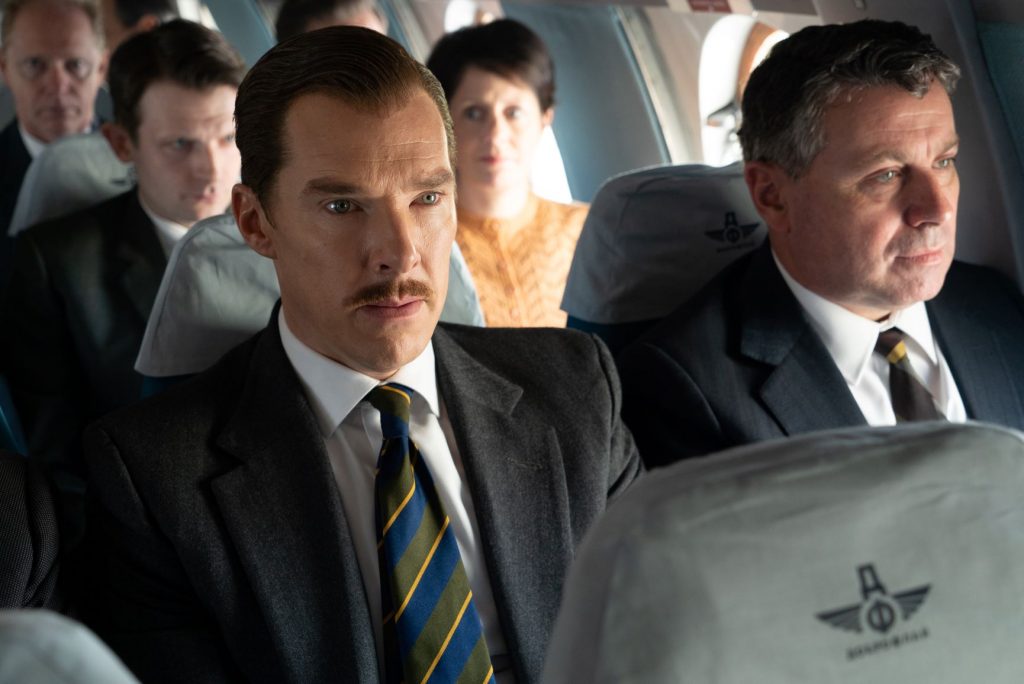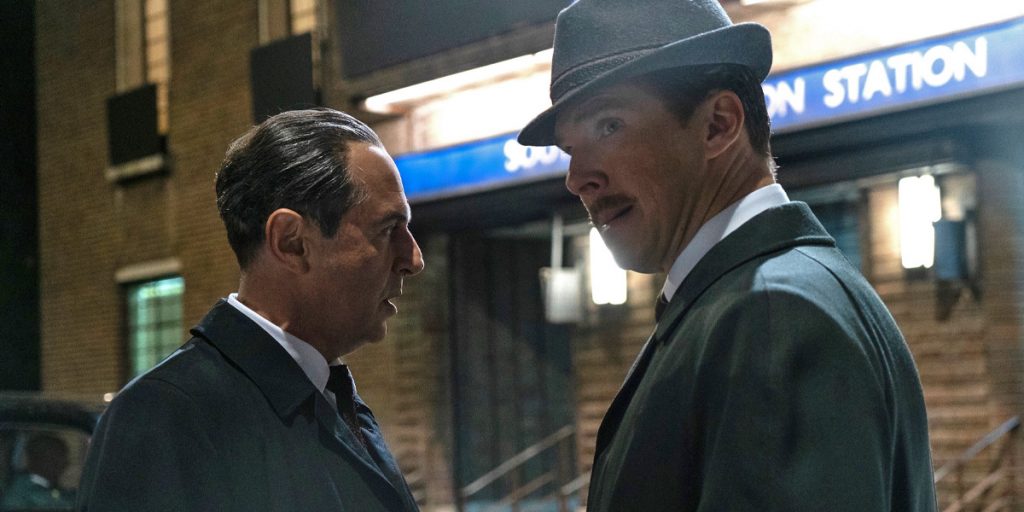The Courier is elevated by a tandem of excellent lead performances, and marks a wonderful throwback to a type of film that just isn’t made anymore.
I was a history major in college, and one of the reasons I chose that pursuit was because I grew up on tales of Cold War espionage. Everything from James Bond and Jack Ryan to George Smiley and Three Days of the Condor in film, television, and literature was integral to my upbringing, and so I entered The Courier with a certain appreciation for what makes the genre tick.
Perhaps the element that The Courier best nails about a good spy yarn is the sort of fundamental decency that underlies a great many of the best entrants in the genre. This film, inspired by real life British businessman Greville Wynne, is premised on the notion that the best spies are not motivated by jingoistic ideals of party or politics, but rather by a profound aversion to war. It’s the best of master novelist John Le Carre’s formula brought to the fore. Here, the spies are motivated by avoiding nuclear war, and by maintaining the peace.
Benedict Cumberbatch (Doctor Strange, Sherlock) is a perfect fit as Wynne, a man of some self-interest drawn into the spy game out of business opportunism. The character is kept in the game by a desire to avoid war. Cumberbatch is an actor who effortlessly conveys intelligence – it’s not directorial trick that he’s been a perfect fit as uber-intellects like Sherlock Holmes and Alan Turing. His best known role, as the MCU’s Stephen Strange, sees him as a man who can quite literally rewrite the rules of the universe on the fly and foresee the future with unerring accuracy.
The film makes clear that Cumberbatch’s Wynne is an excellent businessman, but it’s the way they subvert the actor’s fundamental intelligence that brings the role to life. By casting Cumberbatch as the neophyte, a man out of his depth in the spy game, the film has deftly amplified the stakes of the storytelling without resorting to immediate peril of nuclear war. The greatest skill this character bring to the table is, as he calls it, “his one true gift” – an immense tolerance for alcohol.

Cumberbatch’s counterpart is the very good Russian actor Merab Ninidze (Deutschland 83). Playing a spy motivated by concern over the anti-intellectual state of his country’s leadership – I can easily imagine the chuckles to modern day parallels the description would get in a packed Manhattan theater now – Ninidze’s Oleg Penkovsky plays a deeply human character. His effortless chemistry with Cumberbatch makes the unstated trust between their two characters an easy leap for the audience.
I appreciated that The Courier, even as tensions increase, does not resort to easy “doomsday clock” story telling. Mistakes are made and characters suffer consequences, but it always has a sheen of realism. The storytelling is well aided by excellent period theming. The story exudes Eastern European Soviet Bloc grit and grime, not the glossy sheen the era often sees in lighter era material like the Bond films.
My biggest objection to the film is that it cast two of my very favorite actresses and then gave them very little to do. The wonderful Jessie Buckley (I’m Thinking of Ending Things) plays Cumberbatch’s wife and, while she does everything one could to elevate the role, it’s hard to read the character as much more than an effort to give the Cumberbatch character an extra point of stress in his life. While the viewer is concerned about nuclear espionage, we’re sidetracked by her unfounded concerns of her husband’s infidelity. Rachel Brosnahan (I’m Your Woman, The Marvelous Mrs. Maisel) is stuck playing a part that occupies something of an uncanny valley. I understand the rationale for casting a woman as the CIA handler working with MI6 to manage Cumberbatch’s efforts, but it simply doesn’t feel right for the era. Brosnahan brings her usual charisma and charm to the part, but a young woman in the role typically occupied by an old white man tends to undercut the otherwise realistic take on the spy genre.
Quibbles aside, The Courier makes for a wonderful throwback to the sort of spy story they just don’t tell anymore. These sort of stories – as in The Little Drummer Girl and The Night Manager – seem to be migrating to the miniseries format. Both of those are wonderful series, but there’s something to be said for the tension that can be generated in the more constrained structure of film. It’s easy to imagine a world where The Courier is expanded to 8 episodes on FX or AMC, but I think the filmmakers have picked the right format – a good old fashioned movie – for this story.
The Courier is now available to watch on digital and on demand.

